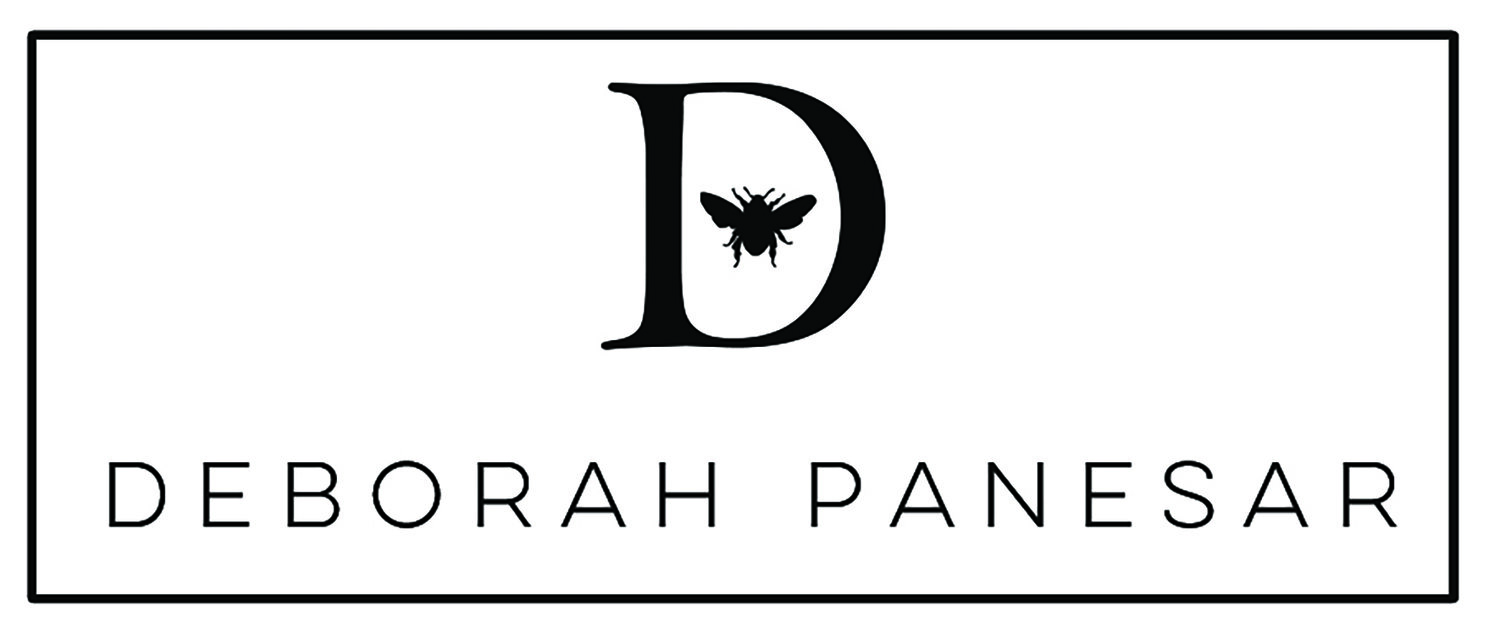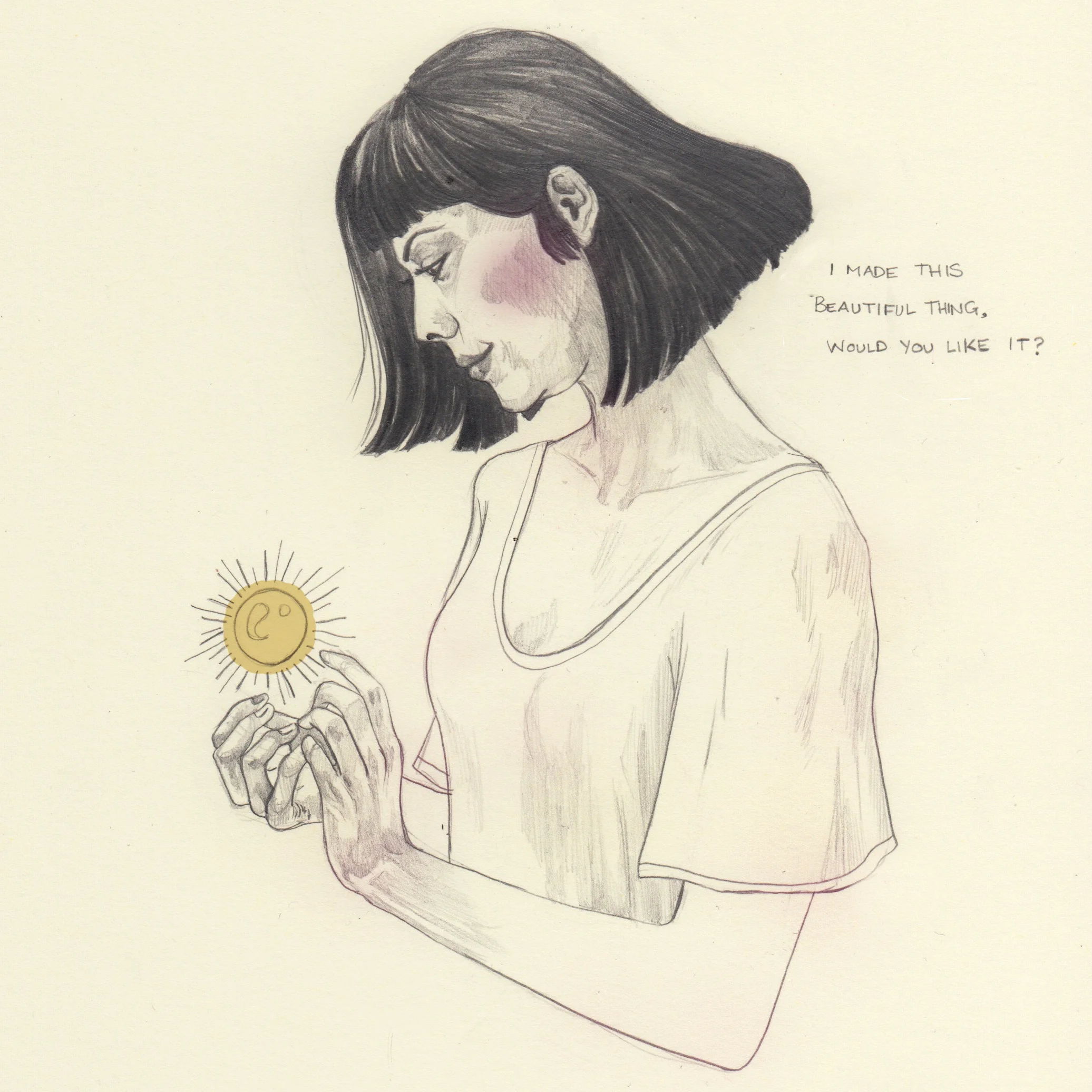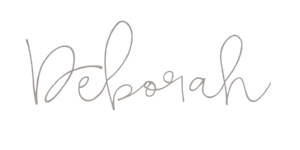The Guilt of Selling - And How to Work Around It
If you run a business, you know how important selling is. We have to sell in order to survive, and of course to pay for all the fun (and not so fun) stuff that comes along with being an adult (or one that is pretending to be).
After all, only you can keep the proverbial lights on in your small indie empire.
For the vast majority of the year selling and selling tactics don't seem to be an issue - the odd discount code here and there, a sale, a promotion or an offer. They do wonders to bring in new customers and clients and, hopefully, boost sales. But then comes along Christmas and it's foreign cousin, Thanksgiving, who brought their unwanted and shamed twin brother, Black Friday.
Illustration by Deborah Panesar
If you run a business, you know how important selling is. We have to sell in order to survive, and of course to pay for all the fun (and not so fun) stuff that comes along with being an adult (or one that is pretending to be).
After all, only you can keep the proverbial lights on in your small indie empire.
For the vast majority of the year selling and selling tactics don't seem to be an issue - the odd discount code here and there, a sale, a promotion or an offer. They do wonders to bring in new customers and clients and, hopefully, boost sales. But then comes along Christmas and it's foreign cousin, Thanksgiving, who brought their unwanted and shamed twin brother, Black Friday.
It seems Black Friday stirs up some pretty intense feelings in not only customers but also businesses. Black Friday is a mixed review entity.
Like the typical un-liked cousin who turns up for family dinner, you don't want to acknowledge them but there is this sense of obligation to have to accept them and entertain them for all their unlikeable traits.
Personally, I've never wrangled with the sense of guilt around this selling period, perhaps because my customers have been only too engaging in the Black Friday sales I've hosted and the savings it's meant for them. But last year I started to notice a lot of designer-makers share through their social media how they wouldn't be taking part because of the mass consumerist aspect of it, and how instead they would donate to charity or host a sale a different time.
Queue floods of guilt and shame, and also a lot of questions.
If we stand against Black Friday, what does it mean when we do hold promotions and sales during the year? Don't these things entail the same consumerist driving ideals? And what about when we have post Christmas sales? or even, when we're just trying to sell anything?
And down and down the rabbit hole we go.
I came to a pretty stark conclusion that in the end, it would mean no selling at all if you didn't want to be a part of that lifestyle. And as much as that would be a wonderful ideal to live with, it's not necessarily possible with crippling outside forces such as a weakened currency or a more spend wary audience who maybe don't have the disposable income they once did. People are far more careful with how they spend their money, and they want to make the best possible financial choices.
So what can we do, as indie businesses or designer makers to keep our businesses afloat without selling our souls to the Black Friday devil? How can we help our customers, and ourselves, to make more from the money we have?
Firstly, we need to stop feeling guilty for selling, in any shape or form. You are a business, and if you are serious about building your small and perfectly formed indie biz into something bigger & better, or even for the satisfaction of knowing that every penny that pays for your living costs was earned by your hands, then you need to accept that there will be an element of awkward selling.
Hustling is hard. And if it's making you feel uncomfortable then that's probably a good thing because it means you're stepping out of your comfort zone. So keep doing more of it and see what happens.
Secondly you need to look at your business, no one else's, and ask yourself these questions:
- Can my profit margins handle a Black Friday Sale?
- Do I have to mark down all my products, or can it just be a select range?
- How have my sales performed in the previous years of Black Friday?
- What is my customer response to past Black Friday sales?
Only you can answer these questions around your business. If you own an Etsy shop you can check your analytics based on days, months and years via the statistics page to see how sales performed at this period of time, and even see what kind of keywords and tags worked for you to bring in those sales.
Lastly, decide how you'll market the whole thing to stay in line with your brand. A Black Friday super promotion will only feel tacky and salesy if you use the same template as say Amazon or eBay on your own business. So think outside the box and consider some of these ideas:
- Donating some of your Black Friday sales to charity (if your pricing module can handle that)
- Promoting it in a humorous or sarcastic way that actually laughs at Black Friday
- Take discounts off the table and offer free shipping or free gifts instead.
- If using discounts, use them sparingly - only apply it to products that have a decent profit margin and where you will earn a wage from them. Follow this super handy article from Etsy to make sure you're not undercharging your items.
Above all, remember to keep it personal. I can hazard a guess that the main reason people buy from your small business is because you are the face of the brand, and they want to buy something from a human and not some warehouse out in the middle of nowhere. So make sure that every step of your Black Friday journey is unique, individual and personal, just like your brand.
And should all of this still make you curl up and die inside, then Black Friday selling is not for you. Accept it, and plan a different way to generate sales and interest over the peak selling period with either a blog post, newsletter, or maybe a giveaway. Take advantage of the high numbers of people trawling through the internet that weekend, and make it work for you.
This year I have decided to take part in a Black Friday and Cyber Monday sale but only on some selected lines. I'll be releasing more information around this exclusively to my mailing list subscribers, so be sure to sign up if you want this information to land in your inbox!
Does deleting your Facebook Page mean freelance suicide?
I’m writing this blog post today to reach out to you, to help me process a question that I’ve been trying to get a handle on for the past year: Do I delete my Facebook business page or not?
I’m writing this blog post today to reach out to you, to help me process a question that I’ve been trying to get a handle on for the past year: Do I delete my Facebook business page or not?
It’s been a strange and winding road that has brought me to this place. A few years ago I would have been preaching loud and clear about how important it was to have a Facebook page, that it would be sheer madness to not have one at all. Sometimes I think about it and like some it’s sort of ex I suddenly have all these little feelings of nostalgia towards. But, like a terrible ex, there’s a reason why I simply have fallen out of love with it, and now I’m struggling to figure out a place for it within not only my life but also my work.
My anti-Facebook feelings have been progressively growing since around 2010, funnily enough right after graduating from University. Post-graduation is a funny time, especially if you don’t have a brand new job to go into straight after, where you’re trying to find your feet in a world where you’re not surrounded by other people, intensely, for the first time in 3 years. Facebook was my lifeline to a life that was slowly growing smaller in the distance, but it was also my self-harm tool. Scrolling through an endless stream of friends who had moved together to a new city, who had these amazing new jobs (in their degree field), who seemed to have figured it all out, was quite a painful experience when I was still working at Sainsburys, far from all of them.
That’s when I began to hate logging on to the site. I could tell that it was unhealthy for me to be immersing myself in everyone’s ‘highlight’ reels. Doing so only made it harder for me to move on with my life, to build new friendships and social circles. I was just too wrapped up in everyone else’s lives rather than nurturing my own.
So from that point on I started using Facebook for personal things less and less. I was strict myself, not allowing myself to scroll too much through the feed, or do a good Facebook stalk (come on, we’ve all been there) and if I did, to keep reminding myself that what these people were doing with their lives did not invalidate mine, or my achievements, in any way less important.
At this point I was LOVING my business page because it was giving me the voice I needed to get my business out there. My confidence towards my illustration work was growing because of the likes and shares, and I felt more comfortable posting through my business page than on my personal page. It was, in some sort of psychological way, allowing me to become the person I wanted to be.
But then there came Instagram. And Twitter. And a blog. And Linkedin. And all the many other social media sites. Before these platforms came around Facebook was the calling, especially after MySpace (sorry Tom!) and it was just the done thing; you had a Facebook, and if you have a business then you have a Page. People would say that to not have one was just madness. Really, the true madness is in the many, many platforms that you feel you must tend to.
One day I realized that I was feeling mentally exhausted from thinking of all this different content to share over so many platforms. I’m not a marketer, I’m an illustrator and should be tired from drawing, not social media. I started thinking ‘I need to lighten the load’ and when I even entertained the idea of getting rid of my Facebook Page I immediately felt myself back peddling.
“No, no, no that wouldn’t be wise” I would tell myself. “EVERYONE has Facebook and connects to it, so I would missing out a huge audience of people to share my work with. If I deleted it I would be shooting myself in the foot.”
And that is the general consensus amongst other self-employed people. Because being self-employed is part of the reason we need it: It’s a free resource to help promote your business. When I say it like that, in layman’s terms, I’m almost thinking that writing this blog post was pointless. I’ve nearly convinced myself to go back on my argument! BUT, plenty of people survived before Facebook. They found work, they promoted themselves and even better, they thrived. So why can’t this be possible in 2016?
There are no cut and dry rules to running your business. This can be a daunting prospect, which is probably why we all follow the same rule of thumb; website, Facebook, email, Twitter. Could we stray off the beaten track though?
I tried to find out.
Surprisingly there aren’t that many blog posts about not having a Facebook Page as a business, but what I did find started to get me back on the anti-Facebook bandwagon.
Freelance writer Alexandra Franzen has no social media profiles, and you know what? She’s thriving. Read her blog post about her decision and tell me if you don’t suddenly feel compelled to live a more authentic life.
There’s also some interesting (and revealing) points that I feel you should read over on the Kissmetrics blog. True, this is more pitched towards Marketers, but there’s a lot of valid reasons to NOT have a Facebook page within the post.
By this point in my ‘should I delete my Facebook?’ mental debate, I started to try and make lists of pro’s and con’s for it, to try and find a black and white formula to make my decision:
+ Facebook is a worldwide platform, which means anything I post has the potential for a global audience.
+ It allows people to contact me in other ways, other than email.
+ It keeps me up to date with other businesses that I love.
+ It helps me rank in Google.
+ I use it not just for my business but for my other responsibilities as an Etsy Team Leader.
- It sucks out time in my day
- It’s hard sometimes to have your posts seen by Facebook’s ever-changing algorithm.
- It paints a bad picture of me if I don’t respond to private messages within 5 minutes (and then hastens to tell everyone about it…)
- It takes people AWAY from my website, which has all my work and info.
- It gives people too much opportunity to bash on your business online before you can help try and resolve an issue (this could be argued a good point, due to freedom of speech, but not necessarily nice if you’re trying to build an image for yourself and haven’t been given the chance to help that customer.)
- Fans don’t actually mean clients. I have never had a client find me through Facebook.
- Lest we forget the endless adverts…
It’s clear I have more negative than positive feelings towards it, so I tried a new tactic: Look at my stats and see if it is actually working to engage fans; well, all I see every week are red numbers and arrows pointing down. These don’t make me feel inspired to try and improve them, they just make me feel exhausted because they’re almost trying to say ‘you need to invest MORE TIME into this!’
I simply don’t have more time – in a literal sense of my workday, and in a metaphorical sense for my life. When I think about Alexandra’s ‘life-minutes’ phrase it actually makes me freak a little. I would hate to calculate how much time I’ve probably wasted trawling through Facebook, setting up posts, trying to engage people. I could have been creating new work, making new things, connecting with real live human beings, nourishing my mind and just experiencing life. Instead I feel I am buried inside a world of stats, algorithms, scheduled posts and constantly checking to see how many likes it’s gotten.
Perhaps it’s my attitude towards it that needs to change, or perhaps I’m just becoming a crotchety old woman in a world that’s moving forward. This isn’t a decision that I want to take lightly (it’s taken me years to build up the loyal following I have!) and I am plagued with ‘what if’s’ and fears around the actual deleting of the account; will my fans not be bothered about my work anymore? Will the action itself reflect poorly on me? Will I lose business?
But there is still that little part of me that is definitely trying hard to take the plunge and move forward. Perhaps I am not the crotchety old woman I think I am, perhaps not having a Facebook is the new way forward? Is this the last era for Facebook, with the likes of Instagram and Snapchat taking the fore? Or am I just investing too much energy into a decision that should be as easy as simply deleting it?
I know many brave creative’s who don’t use social media at all and to them I take my hat off. I still pertain that social media does, and will always, have a role in our modern world, however I’m not sure I want Facebook in my social media picture. Alex Mather’s (of Red Lemon Club) advises in his book How to Get Illustration Clients, to have all social media profiles but invest your energy into one that works for you. For him that’s Twitter, and his following is strong, believe me.
I’m not sure writing this has drawn me any closer to a conclusion, but I put it to any of you who are freelancers, self-employed, small business owners or creative’s: Do you think there is a way of running a business without Facebook?
You can either drop me a comment below or even email me directly – I would love to hear your thoughts and would be ever more grateful if they help bring me closer to some sort of decision!
In the meantime, I wish you all a happy and healthy social media week
Deborah x




